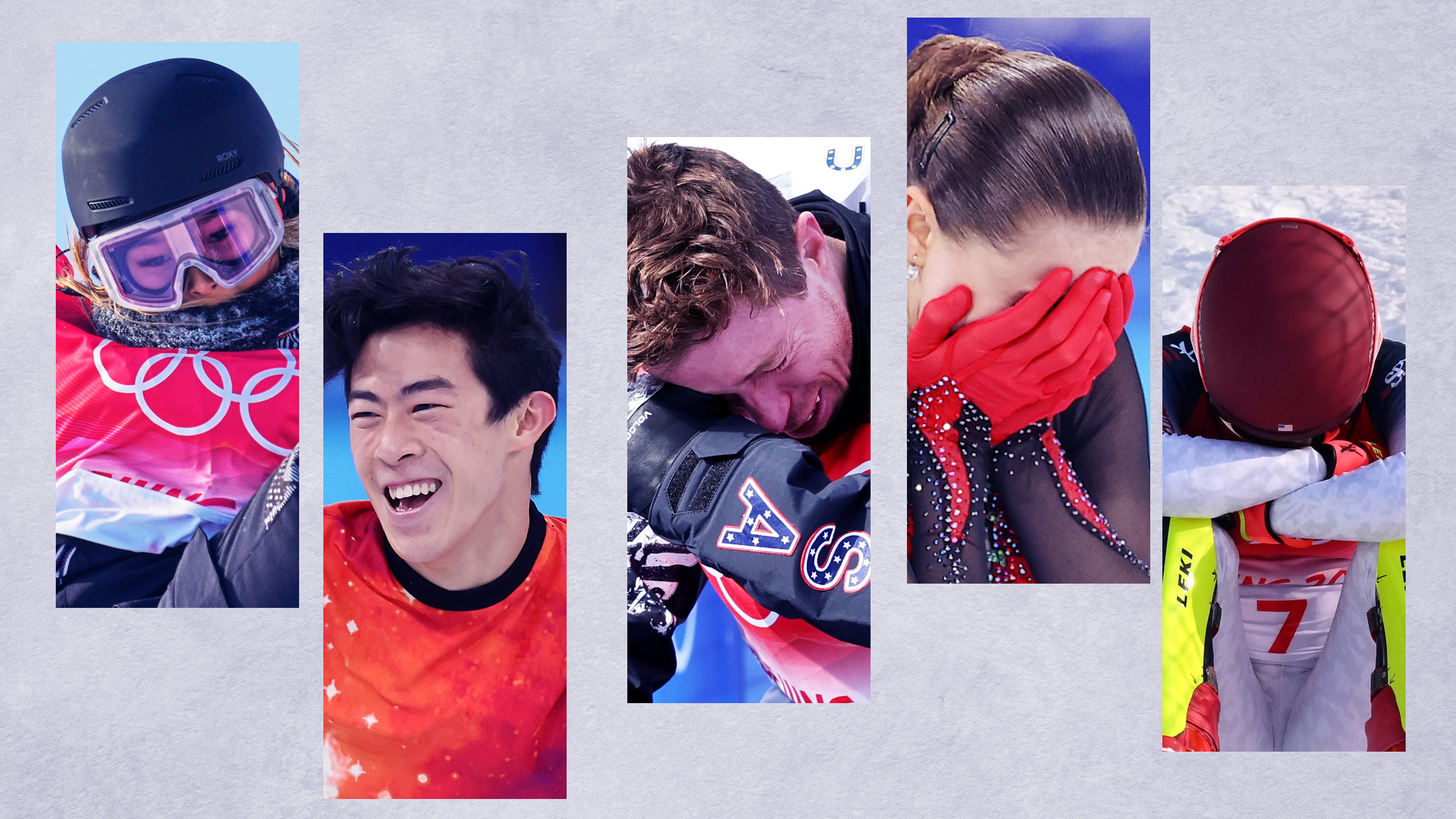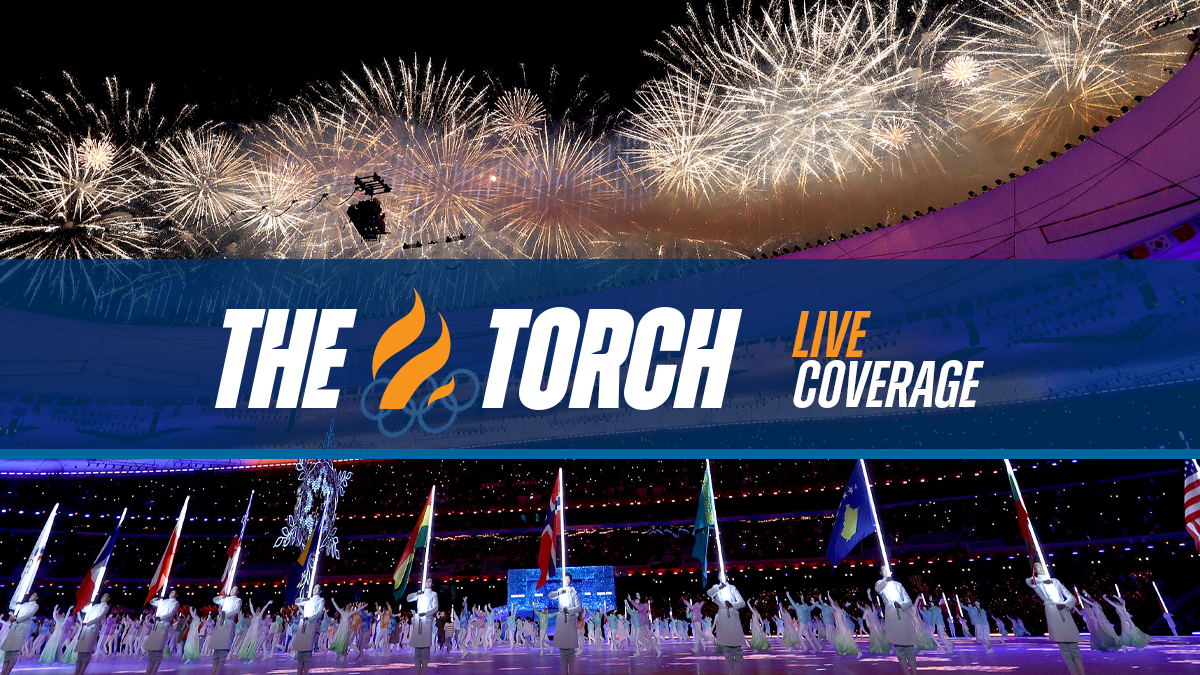Figure skater Kamila Valieva will testify by video at an appeal hearing Sunday that will decide if the 15-year-old Russian star can still compete at the Winter Olympics, The Associated Press reported. Here's how the process will work.
The Court of Arbitration for Sport, known as CAS, will hold an urgent hearing in Beijing on Sunday, where three CAS judges will hear arguments in a closed-door session in a conference room at a Beijing hotel.
The CAS is expected to make the ruling by Monday afternoon. The 15-year-old star is scheduled to skate in the women’s individual event the next day.
Also at stake is Russia's gold medal in the team event, which took place last Monday, which will be decided later.
Get top local stories in Connecticut delivered to you every morning. Sign up for NBC Connecticut's News Headlines newsletter.
If sent home, Valieva would be one of the youngest athletes ever removed from the Olympics for doping.
She had been provisionally suspended on Feb. 8, but challenged the decision and the Russian Anti-Doping Agency (RUSADA) lifted the suspension the following day.
Her urine sample showing the presence of the banned heart medication, was collected on Dec. 25, but the results were reported to official bodies only on Tuesday.
Beijing 2022 Winter Olympics
Watch all the action from the Beijing Olympics live on NBC
The International Olympic Committee, International Skating Union and World Anti-Doping Agency (WADA) appealed, challenging the decision by the Russian Anti-Doping Agency to lift the provisional ban. The judges will consider the request to re-impose the interim ban on her.
NBCLX's Jeremy Berg spoke with the director general of the Court of Arbitration for Sport, Mattheiu Reeb. Reeb has been with the CAS since the mid-1990's.
One of the many tasks the CAS does is provide a panel of arbitrators to travel to the Olympic Games to make legal rulings quickly.
In regards to how long these rulings and cases typically take, Reeb explains, "Twenty-four hours, that's in the extreme circumstances, but of course, we need to render decisions ... which are really within the pace of the Olympic Games so that there's no disruptions."
What Is the Court of Arbitration of Sport?
The Court of Arbitration of Sport provides services to the Olympics or sports federations by agreement. Its rulings are generally final.
For example, Reeb explained, "If the final instance of that federation renders a decision, it is specified that it can be challenged before the Court of Arbitration for Sport within 21 days. So there is a final recourse to the CAS, which is the the last instance."
Appeals can be made to the Swiss Supreme Court, the country's highest court, but on limited grounds. The court's scope is broad, Reeb emphasizes that they are no limits on what it may cover.
"There is no limits... It could be doping, disciplinary, governance, selection, nationality, etc.," he said.
The process is much faster than a typical court process for the Olympic competitors and other athletes. The Court of Arbitration of Sport has a simplified procedure and can set schedules that are more compatible with the athletes, compared to the usual process.
Arbitrators, known as judges, issue the decisions. They are appointed in varying ways and depending on the agreements between parties, there can be a panel of three or sometimes a sole arbitrator.
How Does a Hearing Proceed?
The process begins with an application but moves quickly to a hearing.
"We know that the participants have no time to really engage in long legal battle, and they may not have legal service available immediately," Reeb said.
There are two divisions for the Olympics: an ad hoc division, which is the general division for all cases, and the anti-doping division.
Valieva's case has been submitted to the ad hoc division because "the case was not a doping case at the Games," according to Reeb. "It was performed before the games started in December."
When Is a Decision Reached?
Reeb says it can take six or seven hours, up to a full day to reach a decision. It depends on whether the panel is prepared to put its reasons in writing, for example 10 to 12 pages of arguments, which could require additional time.
How Often Is Doping Reported?
Reeb provided an example similar to Valieva's, though with different facts, in Tokyo last year involving a Swiss athlete. Alex Wilson had a positive test reported prior to the Summer Olympic Games, and was provisionally suspended by Anti-Doping Switzerland. The suspension was lifted quickly, and he entered the Games.
The International Olympic Committee and other organizations challenged the decision, and the case went to the the CAS's ad hoc division. A ruling was needed quickly because the Games were starting.
In the end, Wilson's suspension was reinstated and he did not compete at the Tokyo Games.
Does When an Alleged Violation Occurred Matter?
Reeb says it's a question for the panel of arbitrators to decide.
In Valieva's case, Reeb states, "I'm not able to say whether it will play a role or not, but this is something which will be taken into consideration because there are specific rules in the world anti-doping codes. So, but to say now how it will be used and applied, it's impossible."
Who Are the Panel Members?
There are six arbitrators present, four of them working remotely, all part of the CAS. They were selected from a list of arbitrators, all of whom have full legal training. Most are either lawyers, judges or law professors, in addition to having a sporting background.
During the hearing, "The president will lead the discussion and we'll give the floor to the parties and so on," Reeb said. "And later, the panel will meet for the deliberations."
If there are three different opinions, the president will make the decision himself.
Do Athletes Take Part in the Hearings?
Typically the athletes do not, but they are free to decide whether to attend.
"Some may want to express themselves to say their view, or want to remain concentrated in the Games," Reeb said.
A group of sports lawyers, based in China and able to work in English and French, are available to represent athletes who need legal services and advice. This is a hotline that the athletes can call, and the help is provided free of charge.
Reeb makes a point to add, "It's also a good system to balance the strength at the hearing when we have the big federations represented by professional lawyers and on the other side, the athletes who may not have the the resources to have been to be represented."
Can the Ruling Be Appealed?
In short: yes, any ruling made by the Court Arbitration of Sport can be challenged. The appeal goes to the Supreme Court of Switzerland, and the deadline to appeal is around 30 days.
A decision from the Supreme Court could take a few months.
Athletes could be reinstated until that appeal is heard, but they would have to request a stay of any decision.
"This is something which is not automatic," Reeb said. "It must be requested."
The CAS is based in Lausanne, Switzerland, and is governed by Swiss law.
"Sometimes it looks a bit strange to have an international dispute involving many countries, many participants and nothing to do with Switzerland, and in the end, we go to the Federal Tribunal in Switzerland," Reeb adds. "Sounds strange, but it's a system."




